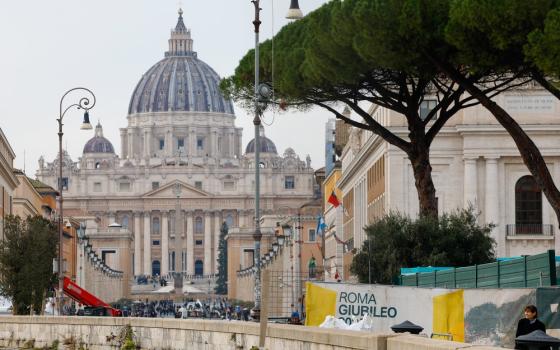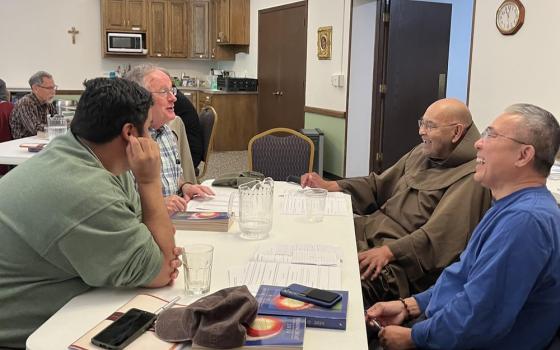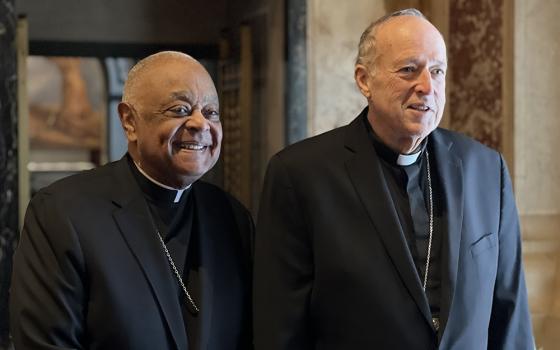Leaders of the G8 nations who will meet next month in Japan should commit to reducing global poverty and addressing worldwide climate change, say the presidents of each nation's Catholic bishops conferences.
"Our religious and moral commitment to protect human life and promote human dignity moves us to be particularly concerned for the poorest and most vulnerable members of the human family, especially those in developing countries," the prelates wrote in a joint letter.
Scheduled for July 7-9 in Toyako, the G8 Summit gathers international heads of state each year to discuss issues of shared concern, including trade, health, energy policy and the environment.
The bishops called upon the presidents of the convening countries to "reaffirm and build upon the substantial commitments" made at summits in 2005 and 2007.
The G-8 includes Russia, Canada, France, Germany, Italy, Japan, the United Kingdom and the United States.
Cardinal Francis George of Chicago, president of the U.S. Conference of Catholic Bishops, was among the letter's eight signatories.
The presidents of bishops' conferences in the G-8 countries reminded the political leaders of their promise to spend $50 billion annually on development assistance -- with half going to Africa -- by 2010.
"This commitment must be met and additional commitments should be made in the areas of health care, education and humanitarian aid," the bishops wrote.
Citing the current world food crisis, the HIV/AIDS pandemic and a growing concern about malaria and other diseases, the bishops called upon the leaders to consider proposals that would ease access to food in poor communities, increase health and education spending, and "move toward just world trade policies that respect the dignity of the human person in their working life."
Promoting self-help and the empowerment of poor people to be "drivers of their own development" are key to such efforts, the bishops said.
They also urged action to ease the impact of climate change on the world's poor in developed and developing countries.
"The poor, who have contributed least to the human activities that aggravate global climate change, are likely to experience a disproportionate share of its harmful effects, including potential conflicts, escalating energy costs and health problems," the bishops said.
The cost of efforts to prevent and adapt to consequences of climate change "should be borne by richer persons and nations who have benefited most from the emissions that have fueled development and should not unduly burden the poor," the bishops said.
Catholic prelates urged the political leaders to remember Pope Benedict XVI's warning that many people are "at risk of experiencing only the negative effects of globalization."
The bishops concluded their letter by offering their prayers for the world leaders that they "will be blessed by a spirit of collaboration that enables you to advance the global common good."
Joining Cardinal George in signing the letter were Archbishop James Weisgerber of Winnipeg, Manitoba; Archbishop Andre Vingt-Trois of Paris; German Archbishop Robert Zollitsch of Freiburg; Italian Cardinal Angelo Bagnasco of Genoa; Archbishop Peter Takeo Okada of Tokyo; Bishop Joseph Werth of Novosibirsk, Russia; Scottish Cardinal Keith O'Brien of St. Andrews and Edinburgh; and English Cardinal Cormac Murphy-O'Connor of Westminster.


